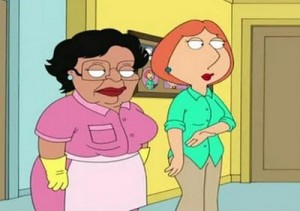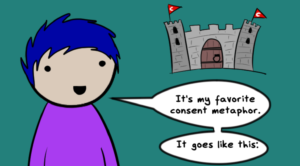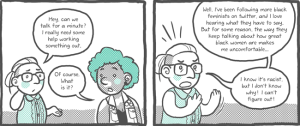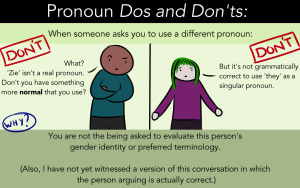
Source: Lexcali
Within the last ten to fifteen years, shows like South Park, Family Guy, Futurama, and American Dad have been popping up, creating huge hordes of followers and dominating the airwaves.
These shows are unique in that they are animated, and animation allows for greater freedom of expression and more watering down of what may seem extremely off-color, inappropriate, or even offensive when real actors are used – things like violence, bodily functions, and even stereotypes are depicted with less grit than would be in real life.
The question is: Are these portrayals – especially the stereotypes – positive or harmful?
Are these shows lampooning stereotypes, making a mockery out of them to the point of leaving them obsolete, or are they really just perpetuating the damage?
The show South Park is known for its stinging social and political commentary, and the show’s creators Trey Parker and Matt Stone have won several Emmy awards because of it.
But embedded within the satirical social commentary – whether it be on the environment, the homeless, or illegal immigration – some prominent stereotypes emerge.
There’s the stereotype of the flaming gay man, portrayed through the characters of Mr./Mrs. Garrison (who went through sex-reassignment surgery from male to female, and back again), Big Gay Al, and Mr. Slave.
And there’s the stereotype of the disabled child – Jimmy, who walks with the support of braces and stutters when he speaks, and Timmy, a boy in a wheelchair who can’t say anything other than his own name when he speaks.
There’s also Sharon and Sheila, the nagging housewives, Randy the doofus husband, and others.
And while these stereotypes in and of themselves can be problematic, especially when taken to the extreme (something South Park is known for – poop and fart jokes, much?), they can also be used to make a statement or subvert the status quo.
Through the stereotype of the schoolteacher Mr./Mrs. Garrison, we see the promotion of children’s (and society’s) acceptance of LGBTQIA+ teachers in the classroom.
Jimmy and Timmy, who often embark on crazy adventures together, give voice —and even more importantly, action — to disabled children on television, where often there is very little.
And we can wrap our minds around the idea that these representations could be positive.
Meanwhile, Seth MacFarlane’s Family Guy — a show similar in style to South Park, but known more for its random comedic cutaways and non sequiturs than for its social commentary — has its own share of potentially problematic stereotypes.
One of the most popular of these is the character Consuela — the town’s ubiquitous Mexican-American maid who speaks broken English, always wears a uniform and rubber cleaning gloves, and spends most of her time asking for “Le-mohn Pledge” while walking around spraying everything with Windex.
Problematic? Perhaps. Probably.
But one could argue that if we look more closely at Consuela’s character, we could see that she is more than just the stereotypical Latina housemaid.
Oftentimes, her character behaves in a way that lends us to believe that she is fully aware of the oppressive, stereotypical situation that she’s in and acts accordingly as the embittered, disenfranchised character that she is.
In one such episode, the Griffin family’s youngest son Stewie (the talking baby) accuses Consuela of stealing his play money (with yet another stereotype that all maids are thieves, alas). Consuela acknowledges that she’s taken the money and when Stewie demands that she return it, she responds with, “Come get, b*tch”.
We could also say that Consuela’s general demeanor and behavior is acknowledgment of her refusal to play by the rules of the culture that oppresses her.
Her trademark response to everything, a long, wavering “Nooooo,” while seemingly indicating a lack of intelligent response (and also another stereotype), could also convey her refusal to cooperate with The Man (i.e. white, patriarchal society).
But even if these hidden messages do exist beneath the stereotypes that overshadow them, are their meanings strong enough to shine through?
Because even though Parker/Stone’s and MacFarlane’s intentions may be to expose problematic stereotypes by shining a spotlight on them, not everyone perceives it that way.
After all, although there are many (myself included) who watch these shows for their social commentary, pop-culture references, use of satire and double entendres, and occasional humorous anecdotes, and can see through or overlook the stereotypes, there are those who watch it specifically because the show makes fun of gay people, Asians, Italians, or whomever the viewer holds prejudiced views toward.
And that’s never a good thing.
Family Guy in particular makes fun of people, cultures, and disabilities for no apparent reason, without the accompanying social commentary or satire to diffuse the jokes.
And I fail to understand how repeatedly making rape jokes, mocking how Asians drive, or picking on Michael J. Fox’s Parkinson’s-related mannerisms (and no, I’m not going to include the links) is funny or makes any satirical/parodist/social statement whatsoever, even in the name of “insult comedy.”
But since the craft of comedy started, (some) comedians have used irreverent, off-color and even racist/ableist/all-around offensive jokes as part of their trade, and no matter how much we call them out on it, this isn’t going to stop.
So instead of focusing all of our angst at the comedians themselves, we should focus on being more critical of their content.
Here are some tips on how to do that.
1. Recognize the Limitations of the Media You’re Consuming
I love South Park for its social commentary and diverse character range, but I think the poop jokes are stupid and the show needs more central female characters. (Not to mention, some episodes are so ridden with stereotypes, that it’s hard to see the good in them.)
Family Guy reflects my love of cheesy ‘80s pop culture like no other show has or will, but their rape jokes piss me off.
In other words, it’s okay to be a feminist and like media that isn’t inherently feminist, so long as you realize that and keep the problematic aspects always in the back of your mind, never allowing them to influence your values and beliefs.
2. Recognize that Meaning Is Negotiated Differently, Depending on the Audience
You think Family Guy’s silly cutaways are funny, but other people take offense to their use of fat jokes. You think Eminem is an amazingly skilled rapper, others see him as a misogynist and a cultural appropriator.
Everyone interprets things differently.
What is offensive to one person may not be seen as offensive to another — usually because they haven’t been in that situation.
For example, those who haven’t been victims of sexual assault may not take offense to rape jokes; white people don’t understand the offense in mocking how Asians drive; cisgender people don’t get offended by jokes that mock trans* folk.
It’s important to be vigilant in thinking through how things affect other people, before deciding if it’s worth laughing about.
3. Keep the Artists in Mind
Tray Parker, Matt Stone, and Seth McFarlane create their craft from their upper-class, white, male, cisgender perspectives.
As such, having them poke fun at the Black experience (the character Token in the former, Cleveland in the latter) is quite different than hearing Dave Chappelle do it on his show.
While the first may be offensive, the second is a way for those who are marginalized to navigate and make sense of their experience, to overcome it.
4. Consider the Positive Aspects vs. the Negative
If the bad, stereotypical, or otherwise negative aspects of the media start to outweigh the good, it may be time reconsider consuming them.
—
Overall, it’s up for debate whether South Park, Family Guy, and other animated shows do more to subvert stereotypes than to exploit them.
But I will continue to enjoy them, while keeping their limitations in mind and realizing that what they portray is far from perfect.
And by following the media literacy tips above, you can, too.
Want to discuss this further? Login to our online forum and start a post! If you’re not already registered as a forum user, please register first here.
Shannon Ridgway is a Contributing Writer to Everyday Feminism from the great flyover state of South Dakota (the one with the monument of presidential heads). In her free time, Shannon enjoys reading, writing, jamming out to ’80s music and Zumba, and she will go to great lengths to find the perfect enchilada. Follow her on Twitter@sridgway1980. Read her articles here.
Search our 3000+ articles!
Read our articles about:
Our online racial justice training
Used by hundreds of universities, non-profits, and businesses.
Click to learn more




















